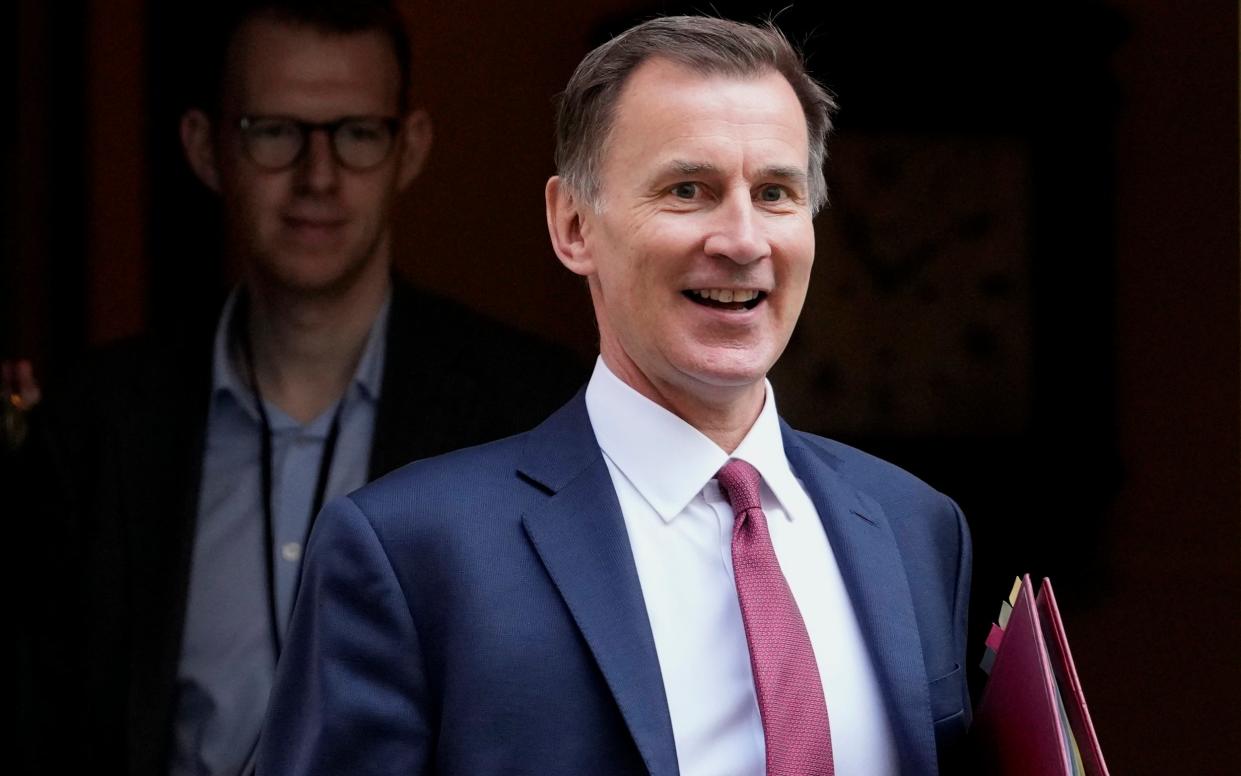Hunt to unveil crackdown on benefits claimants who refuse to look for work

Benefits claimants who refuse to look for work will face harsher punishments under a crackdown to be announced by Jeremy Hunt on Monday.
Speaking at the Conservative Party conference, the Chancellor will argue that it is unfair for those on benefits not trying to get a job to get the same financial support as those who do.
Around 100,000 people are understood to be in Mr Hunt’s sights, with full details about how the regime will be made tougher to be unveiled next month.
Lowering the amount of benefits people can receive if they repeatedly refuse to go to job interviews is one area being explored, figures close to the policy have indicated.
Another would see people currently under no requirement to pursue job opportunities being given new conditions before getting their out of work benefits.
It is part of a wider push by Rishi Sunak to reduce the 5.2 million Britons on out of work benefits – a figure that soared during the pandemic and has yet to drop back down.
‘Paying for the safety net is a social contract’
Mr Hunt will also use his speech to announce that the National Living Wage will rise to above £11 an hour next April, meaning a pay boost for two million people. It currently stands at £10.42.
On benefits sanctions, the Chancellor will say: “I am incredibly proud to live in a country where, as Churchill said, there’s a ladder everyone can climb but also a safety net below which no one falls. But paying for that safety net is a social contract that depends on fairness to those in work alongside compassion to those who are not.
“That means work must pay, and we’re making sure it does. From last year, for the first time ever, you can earn £1,000 a month without paying a penny of tax or national insurance.
“But since the pandemic, things have being going in the wrong direction. Whilst companies struggle to find workers, around 100,000 people are leaving the labour force every year for a life on benefits.
“As part of that, we will look at the way the sanctions regime works. It is a fundamental matter of fairness. Those who won’t even look for work do not deserve the same benefits as people trying hard to do the right thing.”
There are currently around 5.2 million people on out of work benefits. Some 3.7 million claim benefits without needing to look for work for a variety of reasons including health conditions and long-term disabilities.
‘Labour would take us in the opposite direction’
But Mr Hunt wants to focus on around 100,000 who, it is believed, could work but are failing to search for a job. Exact policies will be unveiled in the Autumn Statement on Nov 22, and Treasury figures said the Chancellor’s intervention should be taken as a guarantee that a crackdown is coming.
According to figures close to him, the focus will be around toughening sanctions when people refuse to find work and widening the number of people who have conditions placed on the receipt of benefits to encourage job-searching.
Currently some benefits claimants can be sanctioned for up to half a year if they fail to meet the requirements needed to show they are looking for work.
Mr Hunt’s willingness to focus on benefits and whether enough is being done by some to get back into work has echoes of the policy promoted by David Cameron and George Osborne. Their framing of the Tories as being on the side of “workers not shirkers” helped win the 2015 general election.
Mr Hunt will say in his speech that “Labour would take us in the opposite direction”, adding: “They have pledged to end sanctions, removing the incentive to look for a job.”
He will make clear that he will accept the recommendations of the Low Pay Commission should it, as expected, recommend uprating the National Living Wage. That means it could rise to £11.16 an hour in April.

 Yahoo News
Yahoo News 
